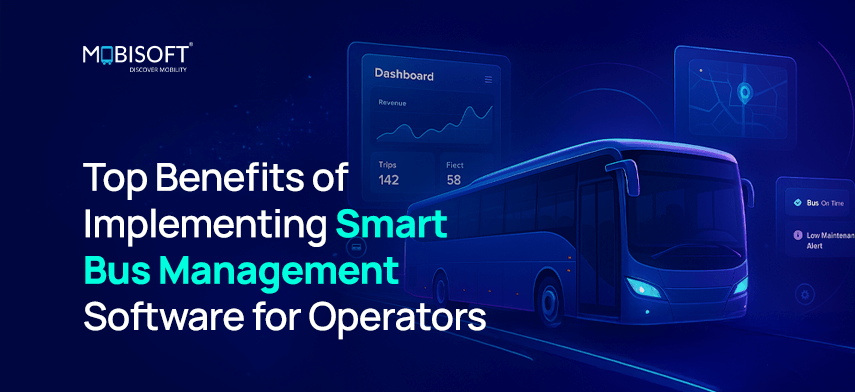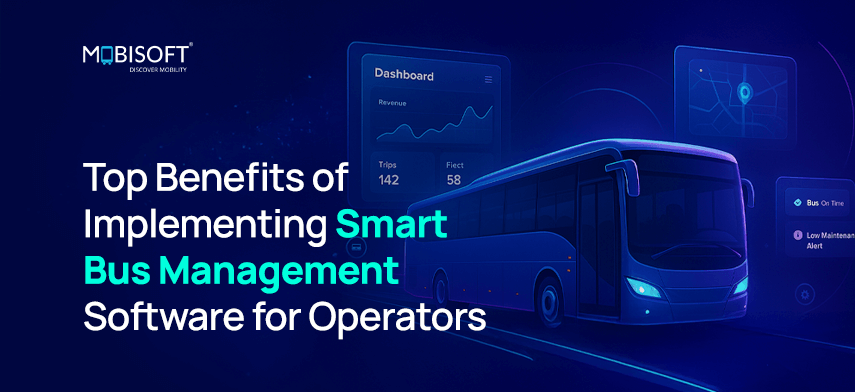
In urban cities around the globe, most people rely on public transport everywhere they go. While it is affordable and usually reliable, it raises concerns. Older infrastructure is not enough to accommodate the needs of urban transportation. New methods that use technology are also necessary to reduce the impact on the environment. Bus services face challenges from multiple fronts. They need to offer efficient and safe services to a much larger urban population, making sure it complies with sustainability.
Smart bus management software and bus fleet management solutions provide an efficient answer to these challenges. By combining real-time bus tracking systems, computerized scheduling, and predictive maintenance, this technology empowers operators to optimize fleets and deliver more reliable service. For today’s bus operators, adopting advanced digital tools is no longer optional. It’s essential for ensuring growth and sustainability.
This blog covers the advantages offered by intelligent bus management software. It illustrates how the innovative tool enables operators to enhance productivity, improve the passenger experience, reduce costs, push compliance, and achieve lasting sustainability. Discover bus management software to see how you can revolutionize your operations.
Importance of Smart Bus Management Software
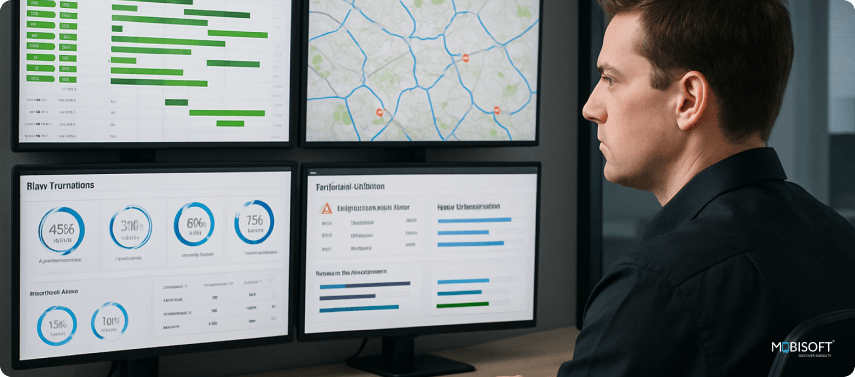
Competition, operational risks, and cybersecurity threats make fleet operations increasingly complex. However, technology can help make these processes simpler, eventually reducing time and effort. Having functionality that revolves around centralized dashboards, real-time tracking, and instantaneous communication, bus operator software solutions allow managers to regulate their fleets on a real-time basis. The addition of IoT and AI-based tools gives predictive analytics, alerts that automate, and fosters decision-making that’s proactive.
Learn how transportation management software can help streamline multi-modal transport operations.
Market Growth and Financial Metrics
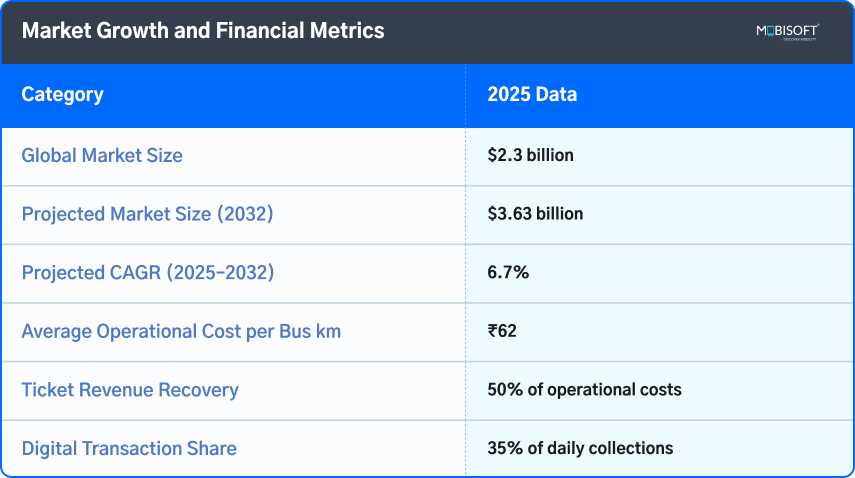
The growing adoption of public transport management software is reflected in market trends. With rising operational costs and demand for efficiency, investment in digital fleet solutions is expected to accelerate.
Enhanced Operational Efficiency
One of the most compelling reasons for the adoption of smart bus management software is the remarkable improvement in operational effectiveness that it provides.
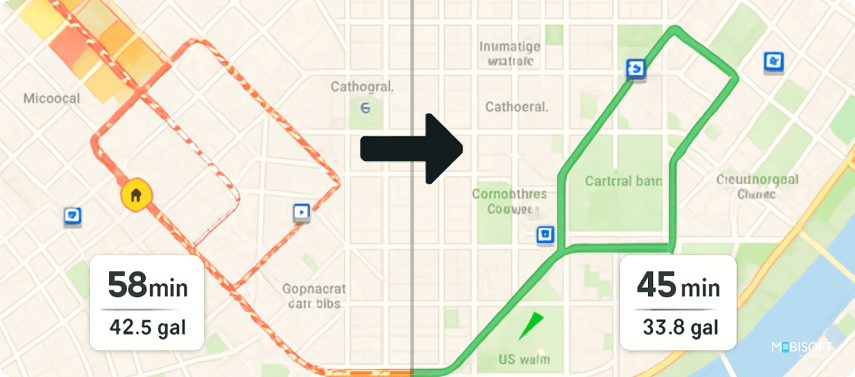
Real-time Bus Tracking and Data Collection
The reason these bus management software systems are called intelligent is that they capture live data, analyzing all the information to make the best possible decisions. Contrary to conventional management systems, which made use of old data and were analytically inefficient compared to the latest versions, they make use of intelligent systems that utilize IoT sensors, telematics, and real-time bus tracking system technologies to gather data consistently.
Automated Scheduling and Routing
Intelligent bus management software searches for routes and traffic in real time, using this information to curate the shortest route possible. This is one of the most important features that helps save time and finances. Cities like London, which have implemented these systems, have seen considerable enhancements in service frequency and timeliness.
Automated scheduling and dispatch improve fleet use by matching buses with passenger demand. These systems examine historical data to predict busy periods and adjust schedules accordingly, functioning as effective automated bus scheduling solutions.
Integration with Public Transport Management Software
Smooth integration with the existing transit infrastructure is the hallmark of success. Today’s bus transportation management software is designed to be compatible with existing infrastructure, ensuring minimal disruption to services during the transition. It also promotes more coordination between multiple agencies, such as buses, railways, and ridesharing services, enhancing the overall public transport management software experience.
Predictive Maintenance
Incorporation of predictive maintenance technologies allows the operator to fix problems before they occur. Predictive maintenance becomes possible based on vehicle performance data, helping avoid breakdowns and prolonging fleet life. This keeps buses on the road longer and prevents costly breakdowns, a key benefit of bus fleet management software.
Operational Efficiency Metrics
The transition to smart bus management software has ushered in remarkable improvements in efficiency metrics. Crucial indicators, such as fuel consumption, maintenance costs, and service reliability, show substantial enhancement. With real-time visibility and data insights from bus fleet monitoring software, operators are empowered to realize tangible performance gains.
Data analytics enable the identification of and elimination of wastefulness in routes, fuel, or crew scheduling. These productivity improvements yield significant cost savings. Better operational efficiency becomes financially rewarding to bus companies. Discover the benefits of fleet management software in improving efficiency and reducing costs.
Read More: https://mobisoftinfotech.com/resources/blog/transportation-logistics/benefits-smart-bus-management-software



